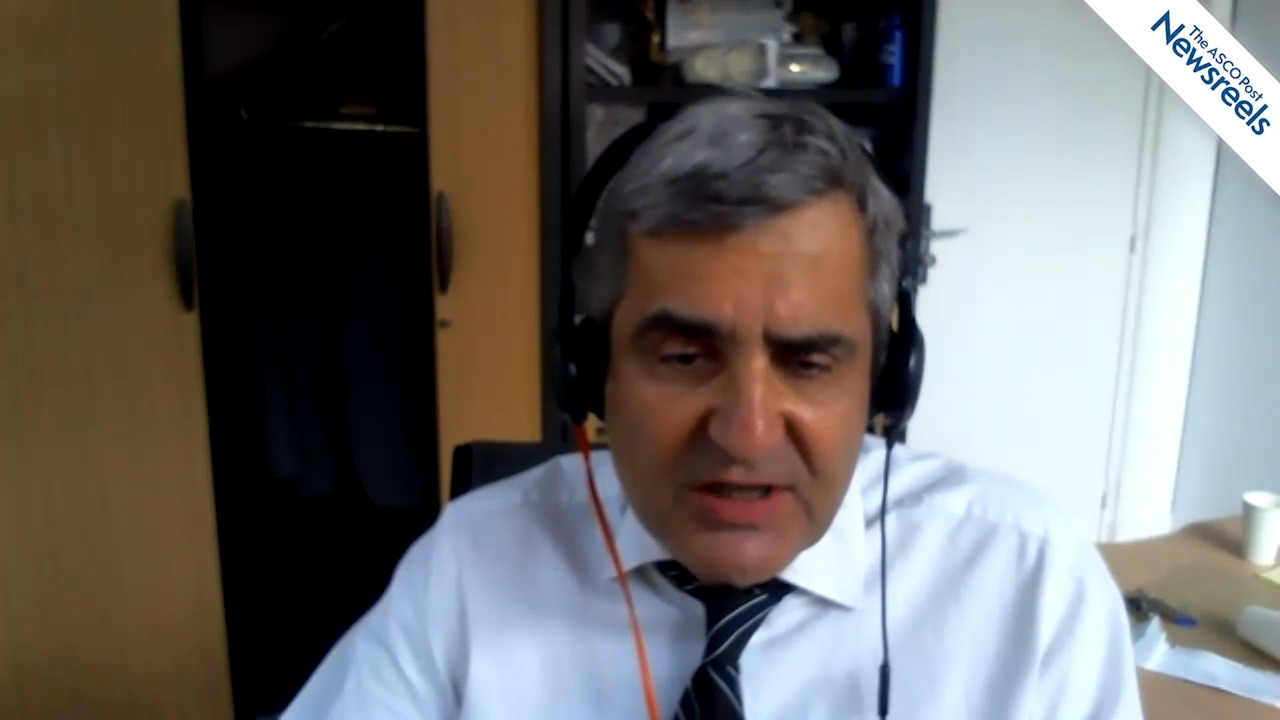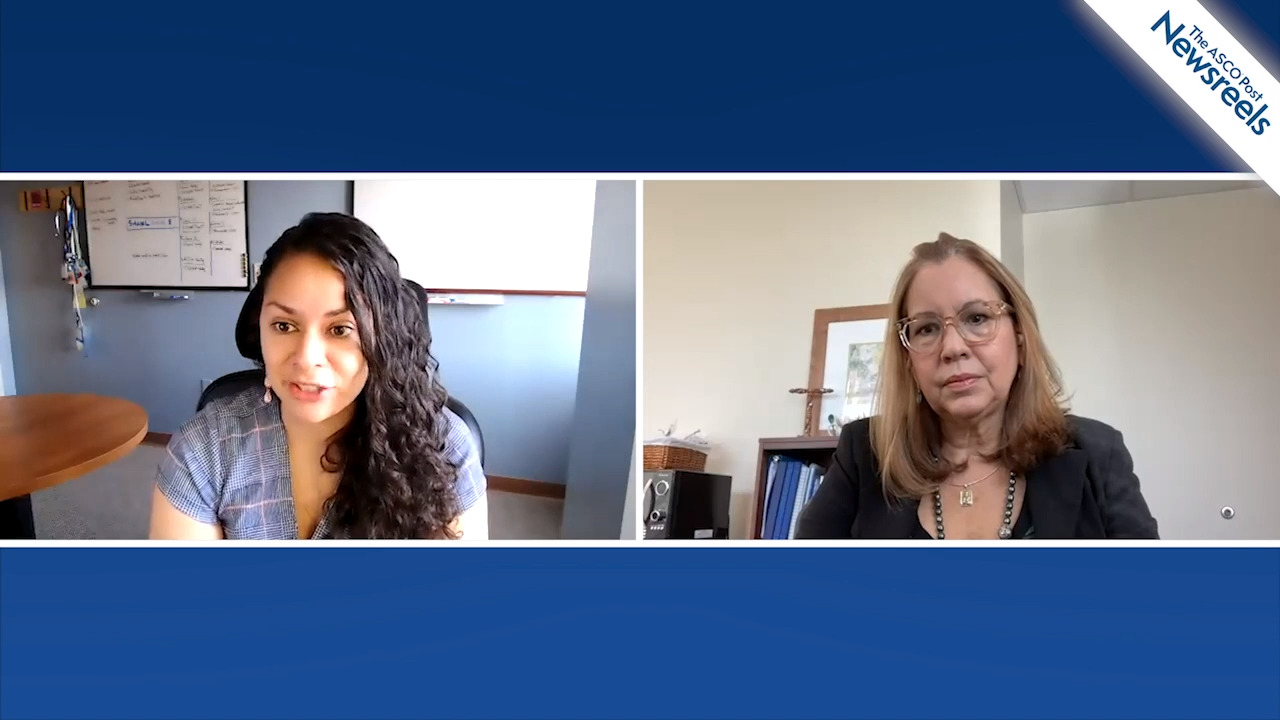Neeraj Agarwal, MD, on Treatment Patterns and Disparities in Patients With Prostate Cancer
2021 ASCO Annual Meeting
Neeraj Agarwal, MD, of Huntsman Cancer Institute at the University of Utah, discusses three studies that examined real-world treatment patterns and utilization of advanced therapies in men with metastatic castration-sensitive prostate cancer, which served to highlight the ways in which Black men may be treated differently (Abstracts 5072, 5073, 5704).
The ASCO Post Staff
Martin Reck, MD, PhD, of LungenClinic, discusses a 2-year update of the CheckMate 9LA study, which sought to determine whether nivolumab plus ipilimumab combined with two cycles of chemotherapy is more effective than four cycles of chemotherapy alone as a first-line treatment for patients with stage IV non–small cell lung cancer (Abstract 9000).
The ASCO Post Staff
Pasi A. Janne, MD, PhD, of Dana-Farber Cancer Institute, discusses study findings that show patritumab deruxtecan is effective in patients with EGFR-mutated and inhibitor-resistant non–small cell lung cancer. Dr. Janne also explains why targeting HER3, a mutation expressed in most EGFR-altered cancers, is a beneficial treatment approach (Abstract 9007).
The ASCO Post Staff
Nadia Harbeck, MD, PhD, of Ludwig Maximilian University of Munich, discusses first phase III results from a prospective high-risk cohort of patients with luminal breast cancer, which showed a good prognosis in some women with more than four positive lymph nodes and low recurrence scores. The study also showed that a lower postendocrine Ki67 index and limited tumor burden may be promising criteria for chemotherapy de-escalation strategies, even in patients with high recurrence scores (Abstract 504).
The ASCO Post Staff
Thierry André, MD, of Hôpital Saint-Antoine, discusses final overall survival data for the phase III KEYNOTE-177 study, which confirmed pembrolizumab as a new standard of care for first-line treatment of patients with microsatellite instability–high/mismatch repair–deficient metastatic colorectal cancer (Abstract 3500).
The ASCO Post Staff
Narjust Duma, MD, of the Carbone Cancer Center at the University of Wisconsin, Madison, and Gladys I. Rodriguez, MD, of South Texas Oncology and Hematology, talk about the underrepresentation of Hispanic individuals in medicine, especially in oncology, and their efforts to create the first Young Investigator Award in Recognition of an Outstanding Latina Researcher to encourage Hispanic women to enter medicine and cancer research.





